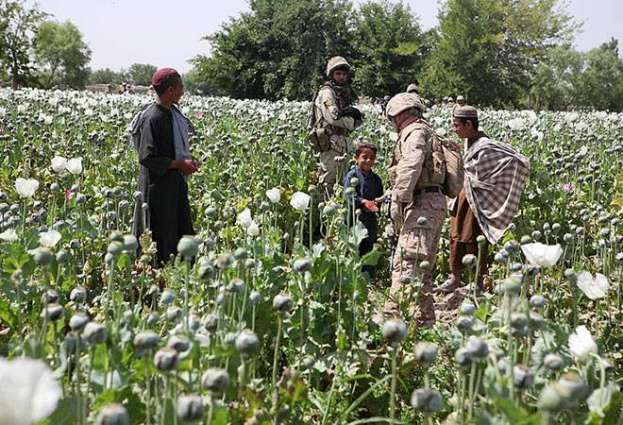Residents of the Aryob Zazi and Ahmad Khel districts of the eastern Afghan province of Paktia have united in their fight against drug trafficking and decided on the level of tribal leaders to fine those selling or using drugs and hand them over to the authorities, a Sputnik correspondent who visited the province has reported
KABUL (Pakistan Point News / Sputnik - 24th March, 2020) Residents of the Aryob Zazi and Ahmad Khel districts of the eastern Afghan province of Paktia have united in their fight against drug trafficking and decided on the level of tribal leaders to fine those selling or using drugs and hand them over to the authorities, a Sputnik correspondent who visited the province has reported.
Afghanistan remains the world's largest producer of opiates, opium and heroin, accounting for about 90 percent of global supply. Yury Fedotov, the executive director of the UN Office on Drugs and Crime (UNODC), has told Sputnik that despite the authorities' efforts to curb drug trafficking, the situation in Afghanistan leaves much to be desired.
"The tribal leaders of the Aryob Zazi and Ahmad Khel have decided that the cultivation and trafficking of drugs is banned. Drugs such as heroin, powder and other items that endanger the lives of the youth, are [banned] and users will be fined cash and handed over to the government," Ahmad Shah, a resident of Aryob Zazi told Sputnik.
Mohammadullah, a resident of the Ahmad Khel district who participated in the discussions, said that the tribal leaders decided that any drug trafficker or shopkeeper selling drugs would be arrested and handed over to the government in addition to a cash penalty.
A local religious scholar in Paktia told Sputnik that the cultivation of drugs and smuggling is illegal in Islam.
"The decision of the tribal elders is in accordance with the principles of islam because Islam does not allow the cultivation and trafficking of drugs and the use of drugs in Islam is illegal. So this matter ... should be taken seriously," Wali Zazi told Sputnik.
The Paktia governor's office praised the residents' efforts to prevent the distribution of drugs, and said that while the number of drug addicts in the region was low, cultivation and trafficking of drugs increased the threat that young people will become addicted.
"We encourage youths and leaders in the fight against narcotics. Alternatively, special projects have been set up to encourage them. The cooperation of the local people is very important in this issue as Paktia is a border province and its neighbors [Pakistan] are involved in this [drug cultivation and trafficking]. The country can be harmed by Pakistan," the Paktia governor's spokesman, Abdullah Hasrat, told Sputnik.
One concern the government has is that terrorist groups are generating more revenue from drugs, which causes instability and leads to an increased threat to security in some areas.




